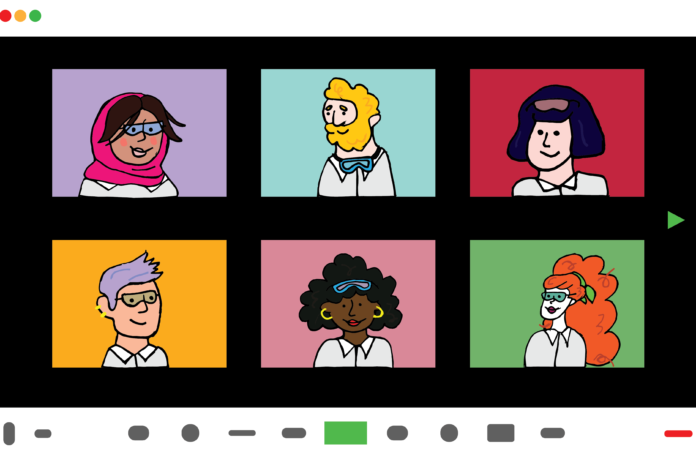Course features remote lectures, labs, weekly town hall meetings
Amid mass transition to remote learning, professors and faculty members within the College of Biological Sciences have collaboratively launched a virtual COVID-19 capstone lab course. The course is set to cover a variety of modules ranging from evolution and ecology to biochemistry.
The capstone course encompasses a variety of scientific disciplines that are relevant to COVID-19 research and thus welcomes students from a range of majors. The course primarily consists of graduating students who were previously enrolled in other capstone lab classes, such as within the departments of molecular and cell biology (MCB) and microbiology.
“[The course] really started with concern by several of the instructors of the capstone courses in MCB and in microbiology that our seniors were really going to lose out because they couldn’t take their capstone lab courses, and this was a real problem,” said Mitchell Singer, a professor from the department of microbiology and molecular genetics.
In order to combat this issue, professors and faculty members within the College of Biological Sciences, including Dean Mark Winey, Associate Dean Michele Igo, Professor Ken Kaplan, Professor Mitchell Singer and others, joined together to create an alternative option for students.
“Dean Winey came up with a brilliant suggestion, [which was] when life gives you lemons, make lemonade,” Singer said, explaining that, in other words, Winey was saying “to take advantage of the COVID-19 pandemic and treat it like real scientists do. [This involves] bringing in people who do biochemistry, genetics, microbiology, immunology and epidemiology all together to attack the problem.”
Beyond teaching critical problem-solving and scientific skills, professors leading the capstone course hope to demonstrate the value of teamwork in the scientific field to their graduating students.
“I think this course is one of those examples of a silver lining from an obviously very stressful and difficult situation,” Kaplan said. “I hope it will show students the power of team science, […] that progress is never made by a single lab, but rather by a group of scientists.”
The layout of the course is set to follow a progression of modules covering a variety of topics, including pandemic coverage in the media, the evolution and phylogeny of viruses, host-pathogen interaction, COVID-19 tests, viral detection and vaccine development.
Course components include remote lectures and labs, homework, pre-lab and post-lab assignments and weekly town hall meetings, which are live-streamed and feature speakers with expertise in a variety of fields pertaining to the subject matter.
For the first week of the quarter, guests included a public health professor and virologist, both from UC Davis. During Week Three, two medical school deans spoke on public health policy and “how the epidemic is exacerbating inequities in public health,” according to Kaplan.
“What’s nice about that town hall format is that students are getting this broad view from experts in the field, even as they are working in the virtual lab, to understand methodologies for studying viruses,” Kaplan said.
The town hall meeting component of the course features a different expert in the field each week. This expert is then available for students to learn from, as they can ask them questions during the live-streamed sessions.
“They have one professor that comes up and starts introducing themselves, what they do, why they matter in this circumstance and then we just get to ask them whatever questions we want about what’s going on in the world,” said Reese Carlson, a fourth-year genetics and genomics and food science double major. “And they’re honest with us, which is wild, but awesome.”
For students not previously enrolled in virtual lab courses, there is an opportunity to take part in the COVID-19 remote course by enrolling in BIS 198, a one unit Pass/No Pass seminar-style course that allows students access to the weekly town hall live streams.
“I know staff and faculty have also been listening to [the weekly town hall] recordings,” Singer said. “I’ve actually emailed the links to groups that I interact with — friends of mine and my family so that they have a better understanding of what’s going on.”
Though the course highlights important aspects of the scientific process as well as problem-solving strategies in light of the pandemic, both Kaplan and Singer agree that the course also emphasizes the importance of collaboration within the scientific community.
“The course would not be where it is today if everybody in the college was not really on board with it […] that’s been really the best part of it,” Singer said.
Written by: Dina Gallacher — science@theaggie.org




